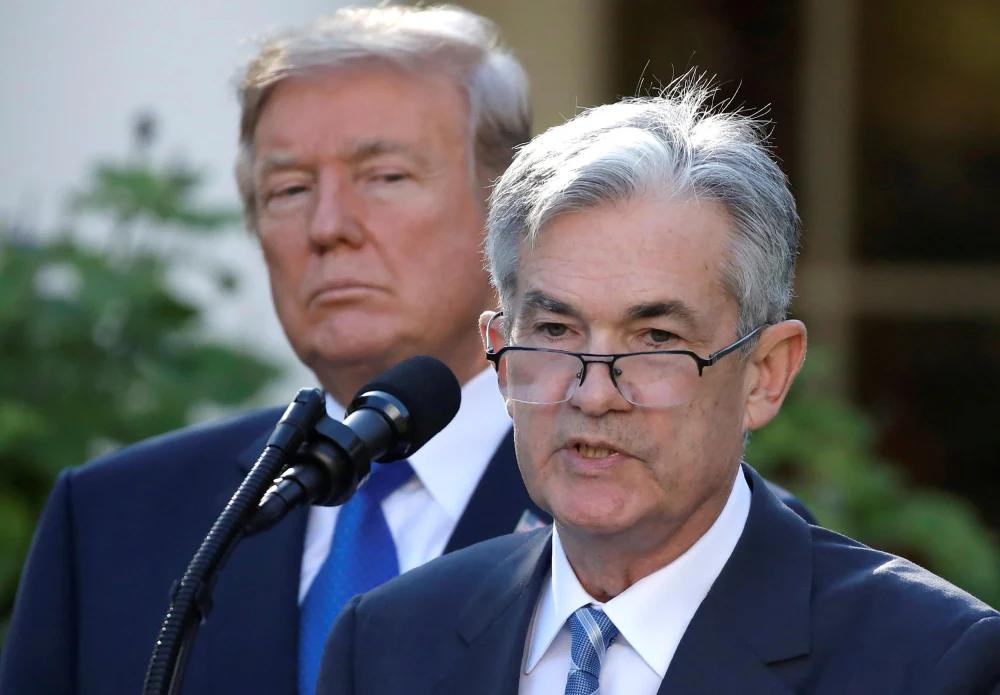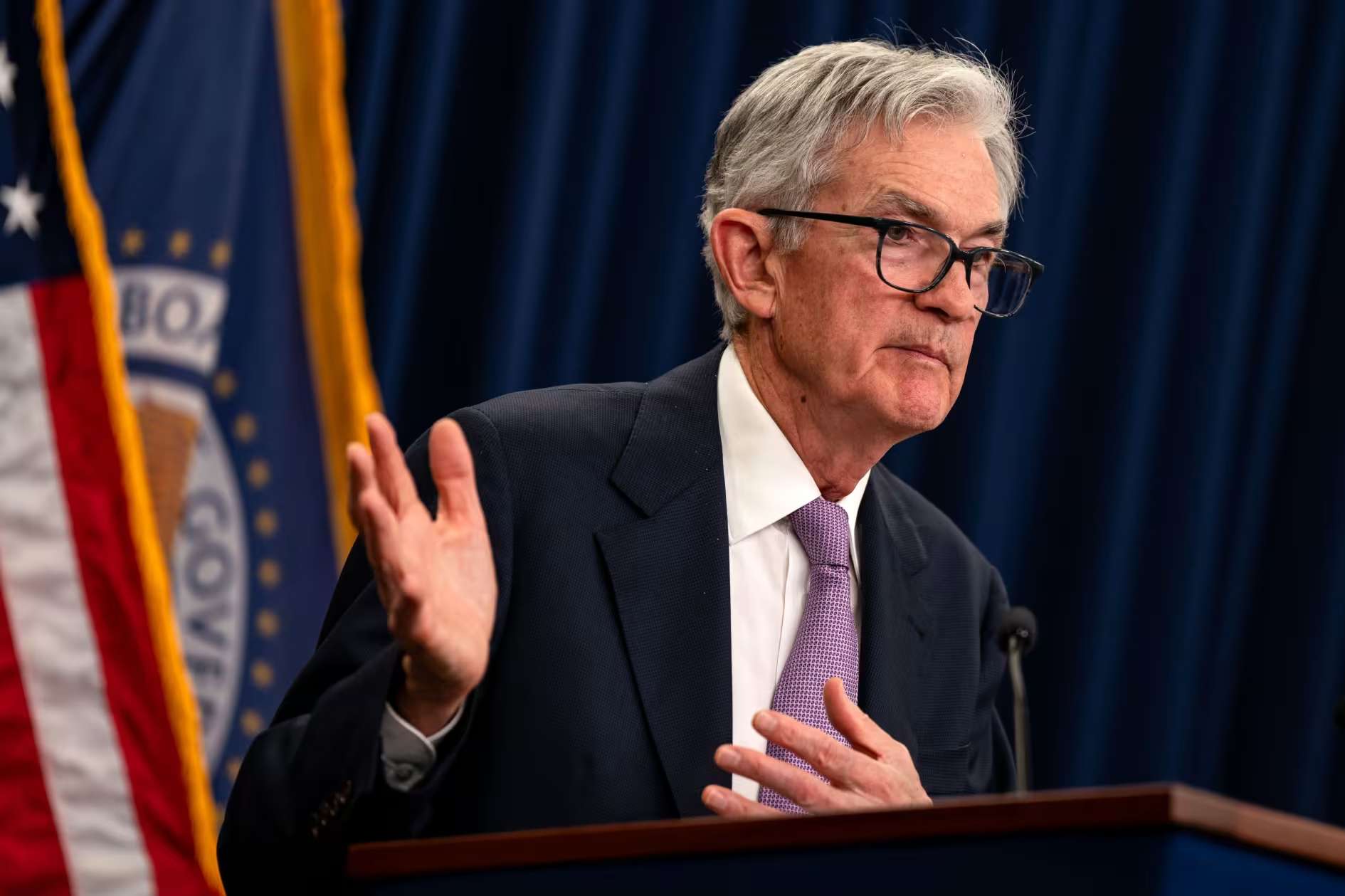There was basically no suspense about the Federal Reserve cutting interest rates by 25 basis points last night. The market was more interested in the battle between Trump and Powell.
The reason for the conflict between the two men was that during Trump's last term as president, Powell's prudent expectation management led to a slow decline in policy interest rates, which was disliked by Trump.Trump believes that Powell's too slow interest rate cuts have hindered the prosperity of the country's economy. He also said that the US president should have the right to participate in interest rate decisions and have the right to comment on whether interest rates should be raised or lowered.
But in fact, due to the separation of powers in the United States, the U.S. president has no right to interfere in the central bank's monetary policy.Moreover, Trump also misunderstood Powell-it is the FOMC Committee that determines the U.S. benchmark interest rate, and Powell only enjoys one vote.If the Federal Reserve Chairman has one more privilege than other members, it is to attend a press conference after the interest rate decision.
Trump is also unhappy about this FOMC committee.He has criticized the FOMC committee for its lack of transparency and will only conduct policy reviews in private before releasing full minutes of its meetings until a few weeks later.He hopes that the committee can publish minutes and meeting reports in real time, and even require cameras to follow them.
Another thing may also cause Trump and Powell to have a feud.Before the Federal Reserve cut interest rates in September, Trump also called for Powell not to cut interest rates for the Democratic government in order to create a peaceful election environment.But in late September, the Federal Reserve still cut interest rates "as planned", even cutting the rate by an additional 25 basis points.Perhaps in Trump's eyes, Powell is already a Democrat.
All in all, although Trump has no right to directly fire Powell, his endless "junk talk" is enough to resonate with the market.There are even media reports that Trump's real favorite candidate is former White House economic policy director Gary Cohen. In addition, former Federal Reserve Governor Walsh and former Trump administration chief economist Hassett may also take over.

Therefore, after Trump's second visit to the palace, last night's press conference was extremely exciting-many troublesome American journalists criticized the "little friction" between the US president and the central bank governor.
First, a reporter said that some people in the new president's team believed that if Trump, as president, asked the Federal Reserve Chairman to resign, Powell should resign.To this, Powell replied bluntly: "No, I will not resign."The reporter then asked, do you think legally you need to leave your job?Powell still replied briefly with one word: "No."
The press group was still unwilling to give up. Next, some people asked whether they believed that the president had the right to fire or demote him, and whether the Federal Reserve was determined that the President of the United States had the legitimacy to demote other Federal Reserve directors who held leadership positions at will. Powell only replied: "The law does not allow it.”
Perhaps Powell's cold answer prevented reporters from finding news materials. Some reporters refused to give up asking whether Trump had been criticizing Powell's performance and was worried about his impact on the independence of the Federal Reserve. Powell said,"I will not talk about political issues today, but thank you for asking."

No resignation, no legal, no discussion. Powell used four "no" words to forcefully challenge the new U.S. president and also brought the topic back to the Federal Reserve's interest rate decision.
--Regarding the Fed's "dual goals", Powell said, first, inflation has eased significantly, and improvements in supply conditions over the past year have supported the economy.Second, on the labor front, wage growth slowed, partly due to the impact of last month's hurricane.The unemployment rate is significantly higher than a year ago, but remains low at 4.1%.Powell emphasized that the labor market is not the main source of pressure for inflation.
--Powell is still reluctant to make predictions about the future interest rate path.He said the Fed will not speculate or assume what will happen in the future.Actions by the administration and Congress may affect the economy over time."If this happens, predictions of these economic effects will be incorporated into our economic models and considered through that channel."
Powell made it clear that he would not provide any signals about the December operation and would focus entirely on monitoring monthly data to determine the future path.
However, he did "imply" the potential pressure on prices that Trump's administration came to power.He said policies were ready to deal with the risks and uncertainties facing the economy.If the economy remains strong and inflation does not steadily move towards 2%, the Fed can relax policy constraints more slowly.
Powell left room for the Fed's monetary policy in December, saying,"We will need to see where the data points."We have six weeks of data to look at."We will have to wait for the data to guide us."It is worth noting that after Trump's election victory, the market has lowered its expectation for another 25 basis points in December-a slight drop from 77% to 76%.
What has changed more dramatically is the market's expectation of suspending interest rate cuts in January next year, which has soared to 54% from 44% a week ago.The market's reaction is certainly due to the policies advocated by Trump, the new president, whether restricting illegal immigration or imposing new tariffs, that threaten to push the United States back into the spiral of high inflation.
Surprisingly, at the end of the press conference, Powell also made a rare comment on U.S. finances.He said that U.S. finances-the federal government's fiscal policy-are on an unsustainable path.He continued: "We see this from, you know, you have very large deficits at full employment and expect that to continue.So, you know, it's important to solve this problem.It is ultimately a threat to the economy.”
Powell's remarks quickly attracted media interest, because before taking office, Trump had already predicted that tax cuts and deficit expansion would be the main stimulus measures in the future.Markets believe that Powell's criticism of the federal government's aggressive fiscal policies at this time was a "covert counterattack" to Trump's previous offensive remarks.
In the next four years, the "tiger and tiger battle" between the US president and central bank governor may continue.

